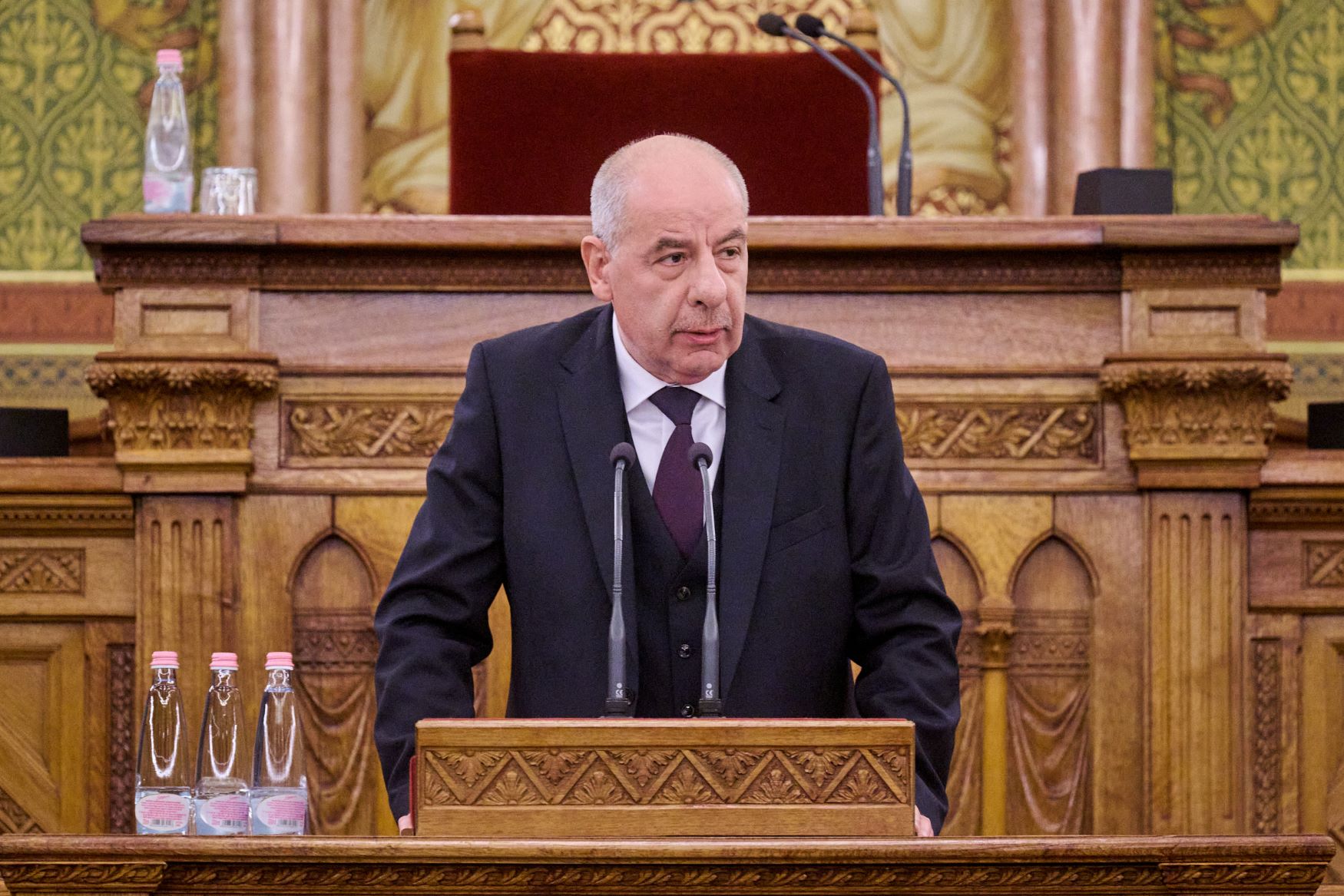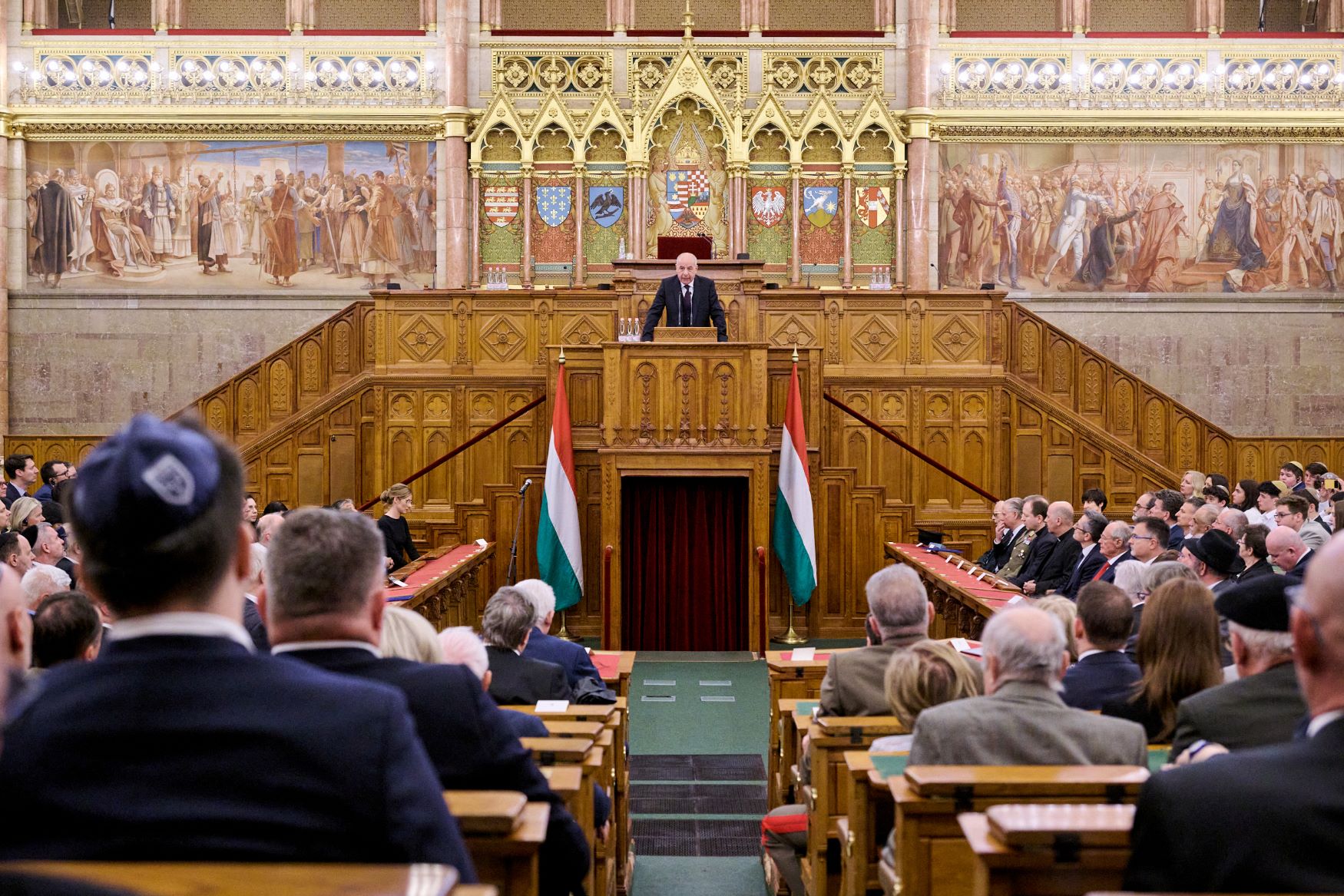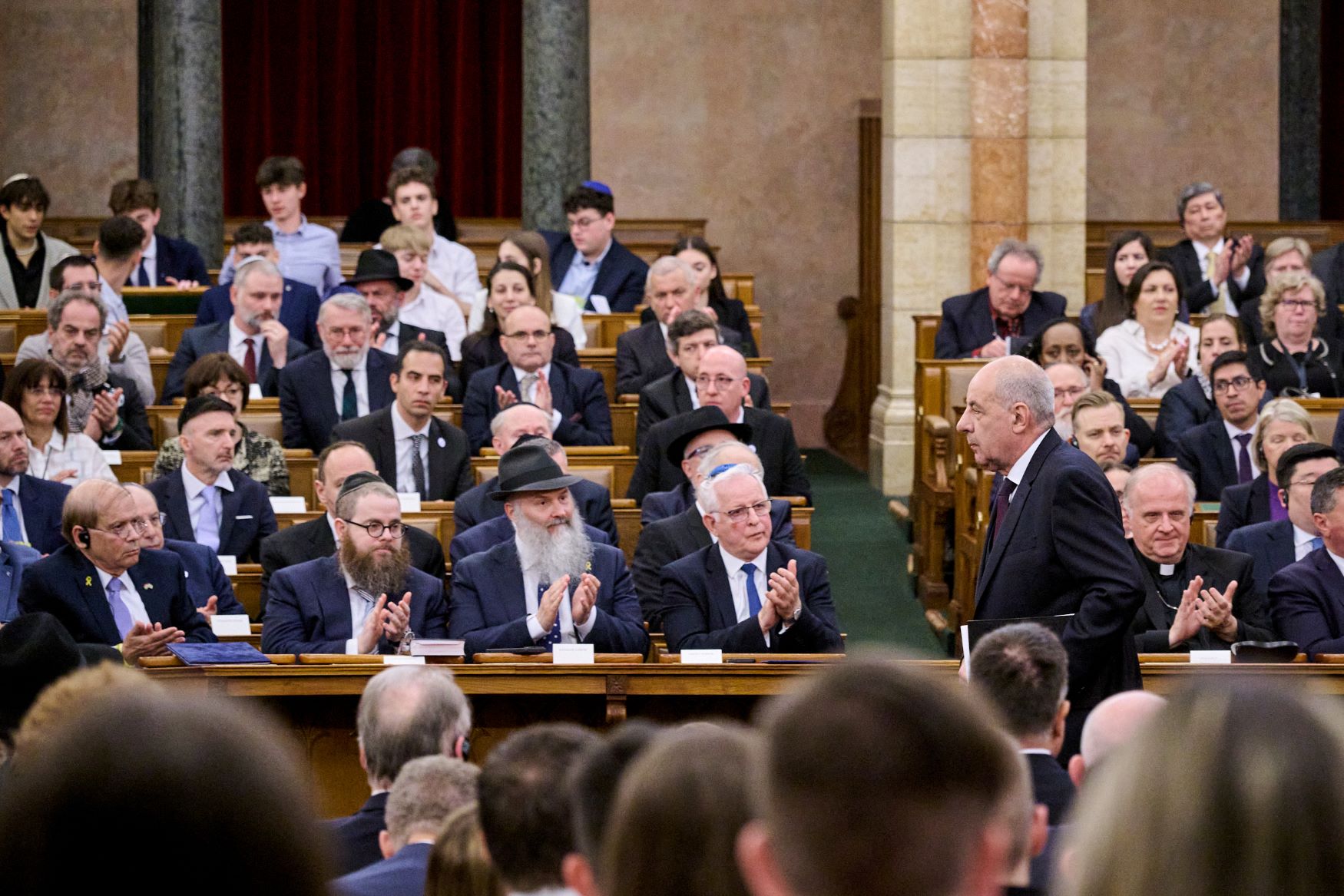Tamás Sulyok, President of Hungary, delivered a speech on the Memorial Day for the Victims of the Hungarian Holocaust
Esteemed Guests, Ladies and Gentlemen!
It is challenging to recall the past on the Memorial Day of the Victims of Hungarian Holocaust.
Challenging, because – as János Pilinszky writes – „once done, done forever”. Challenging, because it is still a vivid reminder of past sins.
For a nation’s self-respect, how it views its past is essential. It shall not deny its „self-inflicted wounds”, but neither shall it deny itself the ever-present possibility for moral purification.
I believe that humans are born fundamentally good. I believe that the task of humanity is peace and peaceful coexistence, rather than hostility and war. I believe that rather than the Janus-faced cursing and judging of each other, we were born for goodness, acceptance and trust.
Yet, why must humanity encounter – again and again - tragedies, reckless and senseless hostility among its members? I myself do not know the answer to this. Perhaps I know this much; that without respect for each other and the acceptance of the truths of others, we are relentlessly followed on our path by the dark shadow of a reluctance to do good.
Today, on the Memorial Day for the Victims of Hungarian Holocaust, on the 80th anniversary of the Holocaust, we remember the hundreds of thousands of our Jewish compatriots torn away from us. For their sake, for our sake and for the sake of future generations, we must make a vow: Never again! Never again shall we allow the ideas of inhumanity to even sprout in our country.
Casting our eyes on St Stephen and Ferenc Deák, with love for humanity and faith in God in our hearts, we are preserving, renewing and increasing humaneness and respect for our fellow humans.
Hope for betterment is always at work in the human being, even in the most difficult of times. It was in this spirit that Miklós Radnóti wrote down the following lines in May 1944, then as the horrors were already fully unfolding:
”They might still be human,
’cause though a-slumbering,
reason befitting humans
they also possess.
So, tell me it is not hopeless.”
Along with the poet who suffered martyrdom, reason befitting humans also leads us to believe that it is not hopeless to have faith – and our faith is supported by our will – that sins similar to the past will never again be repeated in the future.
By remembering – shaken as we are, bowing our heads to the memory of the victims – we express our responsibility for the future as well; the community responsibility that serves as the foundation for our unity as a nation. Acknowledging negative as well as the positive events of our past, this community responsibility also gives us the prospect of a hopeful tomorrow.
Respected Attendees!
The human being as such is sacred. This sanctity means that no person may judge the life of another, no community the life of another community, on the grounds of any conviction, whether of religion, origin or ideology. It is with conviction in the inviolable dignity of the human person, - conviction accompanied by determination - that we look at the past and simultaneously look to the future on this day of remembrance.
With a shared responsibility towards each other that is irrefutable for all of us.
Only when we confront ourselves again and again with the duty to look at the past and then to address the responsibilities towards the present and the future, will we remember with respect and sincerity our former compatriots and fellow humans who became victims.
So that the question, posed reasonably and almost desperately by Lajos Kassák in his work, "But why are we punished if we are innocent?" should never have relevance again.
I was born twelve years after the Holocaust. In the family, I heard that we never harmed anyone, that we had no enemies. I was shocked by what had been revealed to me in the media in recent weeks about my father's past.
My father has been dead for almost forty years. I grew up in an era, and he passed away in one, when perpetrators and victims alike were shrouded in silence. Whether it was the Holocaust, the girls and women abused by Soviet soldiers, or the indiscriminate fire attacks on demonstrators in '56.
I myself had reached the stage in my life allowing me to ask my father questions with a mature head when he was no longer alive, just as he did not live to see the democratic transition. As I could not ask him questions, I was left with some words dropped and his silences. And I cannot ask him today.
I can judge him based on my experience of him over a period of more than thirty years. In '45, he must have been confronted with the horror that the Holocaust meant, and a world must have collapsed in him. For me, this is how it fits with the family narratives I have heard over the decades.
Acknowledging the past, including my own personal past, I now bow my head to all the victims of the Holocaust.
Thank you for your attention.




